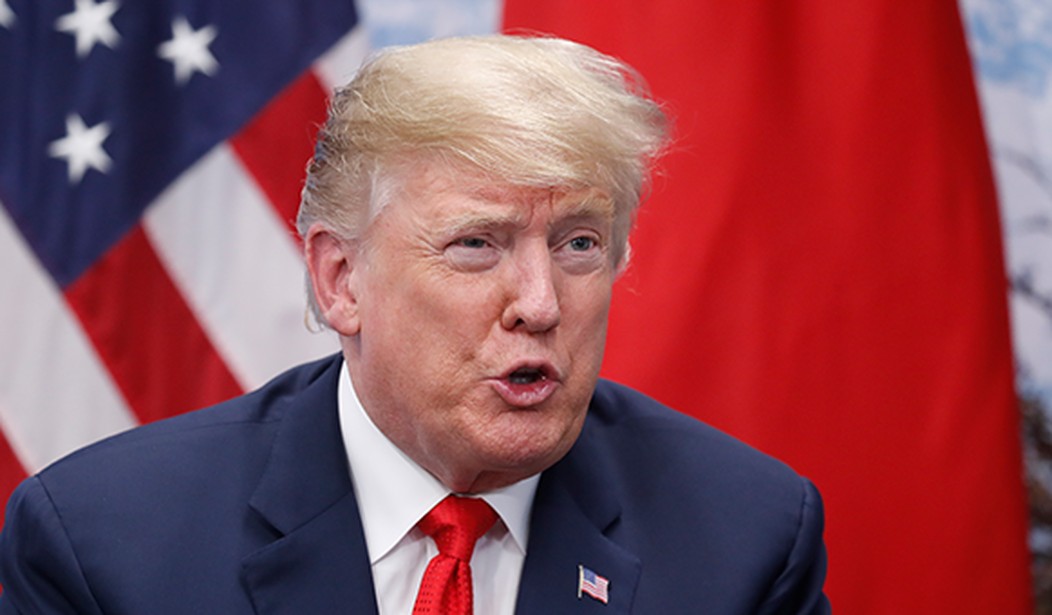When President Barack Obama and a Democrat-controlled Congress enacted the Patient Protection and Affordable Care Act in 2010, there was one thing they wanted everyone to understand: Their plan would not work unless they were to force Americans to buy health insurance.
They wrote this point into the law itself.
"(I)f there were no requirement, many individuals would wait to purchase health insurance until they needed care," the law says.
"By significantly increasing health insurance coverage, the requirement, together with the other provisions of this act, will minimize this adverse selection and broaden the health insurance risk pool to include healthy individuals, which will lower health insurance premiums," the law says.
"The requirement is essential to creating effective health insurance markets in which improved health insurance products that are guaranteed issue and do not exclude coverage of pre-existing conditions can be sold," it says.
"The requirement is essential to creating effective health insurance markets that do not require underwriting and eliminate its associated administrative costs," it says.
Obama and his allies in Congress may have defended the necessity of the mandate in the text of the law itself because they knew it would be challenged on constitutional grounds. This was the first time in the history of the United States that the federal government attempted to force Americans to buy a product.
The Constitution does not give the federal government that power.
The issue, of course, went all the way to the Supreme Court.
Chief Justice John Roberts then wrote one of the most incoherent and indefensible Supreme Court opinions in recent decades.
Recommended
The Obama administration argued that the Commerce Clause, which gives Congress the power to "regulate commerce ... among the several states," gives the federal government the power to force individuals to buy health insurance.
In case the court would not accept that argument, the administration also contended that the mandate was a legitimate use of Congress's constitutional power to "lay and collect taxes ... to pay the debts and provide for the common defense and general welfare of the United States."
Most Americans who disobeyed Obamacare's command that they buy health insurance would be subjected to what the law called a "penalty." The administration argued this "penalty" was a "tax."
Chief Justice Roberts issued an opinion making three main points. First, he concluded that the "penalty" for not obeying the mandate was not a "tax" under the terms of the Anti-Injunction Act, which bars suits against the collection of "any tax" until after that tax has been collected. "There is no immediate reason to think that a statute applying to 'any tax' would apply to a 'penalty,'" Roberts wrote.
Then, he concluded that the Commerce Clause did not empower Congress to force people to buy a product they do not want to buy. "The individual mandate cannot be upheld as an exercise of Congress's power under the Commerce Clause," he wrote. "That clause authorizes Congress to regulate interstate commerce, not to order individuals to engage in it."
Finally, he turned to the administration's taxing-power argument. Here he converted the "penalty" he had cited in the first part of his opinion back into a "tax."
"The federal government does not have the power to order people to buy health insurance," Roberts concluded. "Section 5000A would therefore be unconstitutional if read as a command. The federal government does have the power to impose a tax on those without health insurance. Section 5000A is therefore constitutional, because it can reasonably be read as a tax."
In December 2017, Congress and President Trump quietly obliterated this argument.
The Tax Cuts and Jobs Act that Trump signed that month included language that mandated the "elimination" of the penalty for not obeying the requirement to buy health insurance. But it did not touch the language actually requiring that people "shall" buy health insurance.
Advocates of the Obamacare mandate could no longer defend it as an exercise of Congress's taxing power because there was no longer a tax -- or "penalty" -- enforcing it.
In an opinion that simply followed the reasoning laid out by Chief Justice Roberts in his Obamacare decision, U.S. District Judge Reed O'Connor ruled last week that the Obamacare mandate is unconstitutional.
Paying full deference to the language in the law itself that the mandate is "essential" to the operation of the Obamacare health system, Judge O'Connor ruled that the mandate could not be severed from the rest of the law and, thus, that the entire law is invalid.
"In the face of overwhelming textual and Supreme Court clarity, the Court finds 'it is 'unthinkable' and 'impossible' that the Congress would have created the' ACA's delicately balanced regulatory scheme without the Individual Mandate," O'Connor wrote. "The Individual Mandate 'so affect(s) the dominant aim of the whole statute as to carry it down with' it," he wrote.
Now Chief Justice Roberts should have an opportunity to follow through on the reasoning of his own most infamous opinion to judicially oversee Obamacare's self-inflicted demise.
Terence P. Jeffrey is the editor in chief of CNSnews.com.

























Join the conversation as a VIP Member